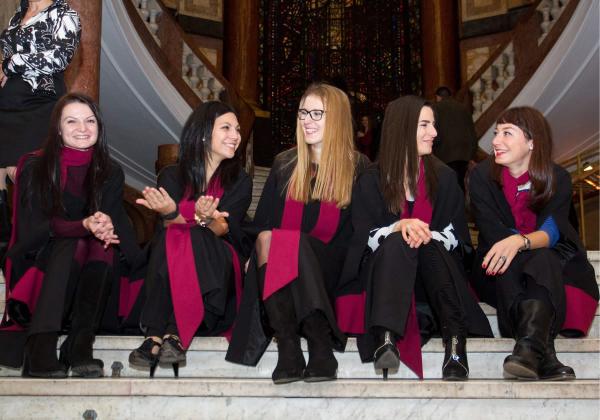Main aims: By providing a thorough grounding in the main theories and methods of assessment of child and adolescent development, the program is primary intended as theoretical and practical training for working with children, adolescents and their families in variety of settings (educational, clinical, judicial). It also provides an opportunity for research in developmental and school psychology.
Degree granted: Master degree in Child & Adolescent and School Psychology, after the successful completion of courses, and master thesis.
Program description The program gives students the opportunity to acquire a broad expertise at an advanced level in the field of child development, and assessment of cognitive functioning, behavioral problems, emotional development and disturbances, developmental crises and social adaptation. The program is run in collaboration with Med. Academy’s Child & Adolescent Clinic“St. Nicola”
Duration: ree terms (1 year); ive terms (2 year for BSc in humanities)
full time only.
Funding: ll students should pay their fees each term.
Application procedure: nquiries and applications to the Sc Program administrator
Entry requirements:
- BSc degree in Psychology (qualification received from accredited university program); ive terms (2 year) full time only.
- Min. grade of 4.50 from term exams and final exam or theses.
- Written test (50 multiple-choice questions) in basic knowledge in developmental psychology (for BSc graduates in Psychology); nterview (only for applicants successfully passed through written test).
- Interview (for BSc graduates in humanities).
Courses content is organized in seven main areas of study:
- assessment of child & adolescent development – courses in assessment methods – rating scales, questionnaires, interviews, projective methods, art techniques providing skills for evaluation of needs, limitations (including learning disabilities) and potentials of children.
- crises in development
- psychopathology of development – course in child & adolescent psychiatry, clinical assessment, screening of psychopathology, counselling of children and families in clinical setting.
- socio-cultural aspects of development
- educational system expertise – research work and introduction of programs reducing conflicts, enhancing school and classroom atmosphere to provide motivating educational
environment.
- counselling – the training builds up an understanding of theory and basic skills and process of counseling in school, career and family settings.
- research – minor research project that students have to undertake in some courses provide basic skills in development of projects and career in research.
Courses
he program for BSc in humanities consists of two main modules– BASIC and ADVANCED. In the first year (BASIC MODULE) students are required to complete 6 courses from the BSc Psychology Program – Cognitive psychology, Personality psychology, evelopmental psychology (Part & Part ), Psychological measurement and evaluation, Clinical psychology, Psychopathology and Psychiatry. ectures and seminars are designed to provide the methodological and theoretical framework in the field of human development. C U is designed forboth BSc in Psychology and humanities: eaching methods include lectures, seminars, workshops, exercises and case discussions with a strong emphasis on active participation by students. ver 400 hours of supervised practice are provided in different settings – schools, clinics, kindergartens, G s and others.
Assessment: here are written and oral exams associated with each course, at the end of the term. he majority of courses include development of research project. ll students have to develop a master thesis – empirical or theoretical. or successful completion of the program 8 compulsory, min 4/5 optional courses, and master thesis is needed. C S credits are minimum 30 for each term, including 15 for master thesis. pproximate hours in lectures, seminars, practice etc. are 300 for each term.
